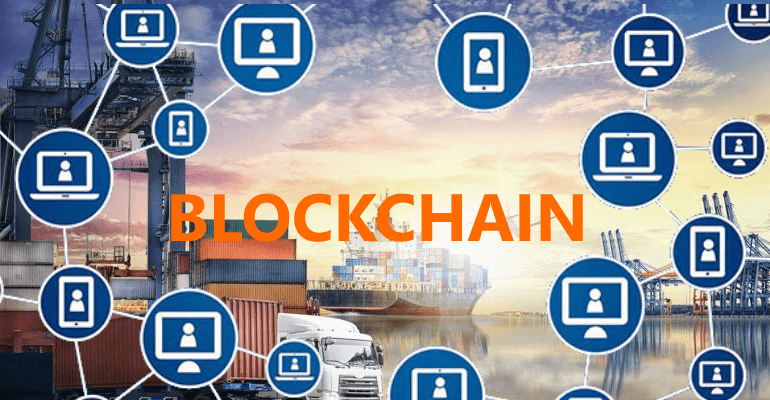
Accenture PLC recently announced that a consortium consisting of AB InBev, APL, Kuehne + Nagel and an anonymous European customs organization examined and approved its blockchain technology aimed at addressing global shipping issues.

The pilot project marked an effort to transition to a process where data could be shared securely through blockchain instead of physical documents, thus leading to cost savings for the industry.
Per the press release, “The solution can speed up the entire flow of transport documents, reduce the requirement for data entry by up to 80 percent, simplify data amendments across the shipping process, streamline the checks required for cargo and reduce the burden and risk of penalties for customs compliance levied on customers.”
The secured storage and transmission of data through a decentralized database is the most attractive feature of the blockchain technology. Originally used for cryptocurrency transactions, the system is transparent and incorruptible and is meant to provide unaltered information.
Since blockchain uses a distributed consensus, tampering with its records without being noticed by an entire network is difficult. This makes the system extremely safe. With minimum chances of double counting and hacking, the possibility of monetary losses is low.
Driven by multi-industrial adoption, the technology has rapidly gained traction over the last few years. The solutions offered by other key players in this domain like International Business Machines IBM and Microsoft have been adopted by the insurance, banking, food supply and automobile industries among others.
Blockchain in Logistics
Of late, this technology is being used in the shipping and freight industry. In November 2017, United Parcel Service UPS announced that it has joined Blockchain in Trucking Alliance (BiTA) in an attempt to form regulatory blockchain standards for logistics.
In January 2018, IBM entered into a blockchain deal with A.P. Moller-Maersk, a prominent container shipping firm. The partnership is intended to deliver a secure and efficient industry-wide trading platform that will lead to more transparency and simplicity in tracking shipments across borders and trading zones.
 Recently the Netherlands head quartered XELLZ has booked success by placing its project logistics management online system database into a blockchain environment in order to make this more secure.
Recently the Netherlands head quartered XELLZ has booked success by placing its project logistics management online system database into a blockchain environment in order to make this more secure.
These initiatives indicate that blockchain technology might turn out to be crucial for the logistics industry going ahead.
Accenture in Blockchain
Notably, Accenture’s blockchain initiatives are backed by its motto of “Blockchain needs to adapt to an imperfect world”.
Considering regulatory changes and human errors among other issues, Accenture is providing “Editable Blockchain” and has also been awarded with a patent for the same last year.
Also, the company is a member of both Enterprise Ethereum Alliance and the Hyperledger committee, which provide the underlying technology for commonly used commercial blockchain systems. While Hyperledger is an open source global collaboration hosted by the Linux Foundation, Ethereum has been developed by a Swiss non-profit called Ethereum Foundation. This is an additional advantage for the company in comparison to Microsoft and IBM.
Accenture has inked several blockchain deals in the past year. In June 2017, Accenture inked a deal with Microsoft to create digital ID databases for more than 1.1 billion people globally. Its other collaborations include Digital Asset, R2 and Ripple.
Most recently, the company announced that it is developing a blockchain prototype along with DHL to track pharmaceuticals throughout the supply chain. This will be a huge step against tampering of drugs.
www.nasdaq.com

